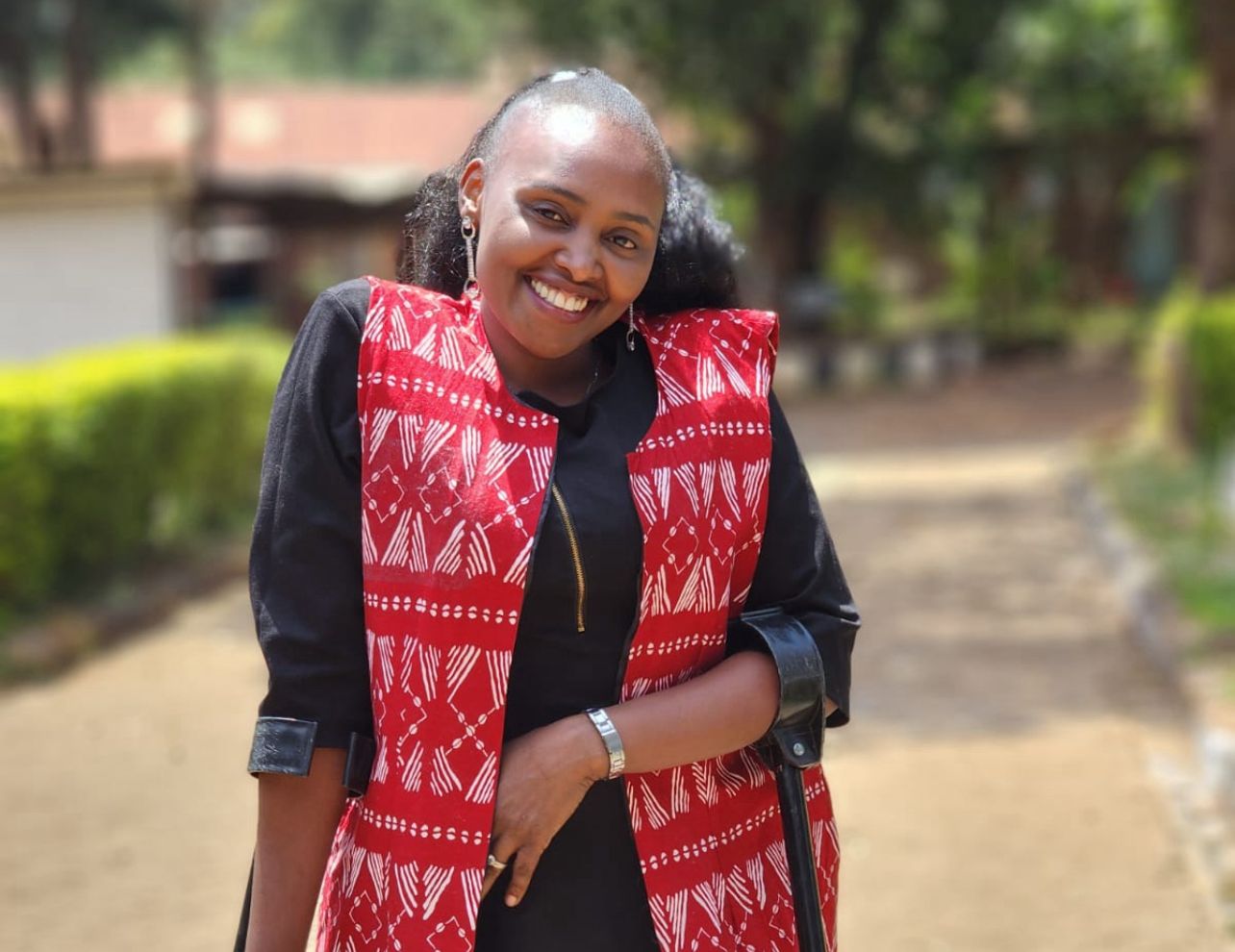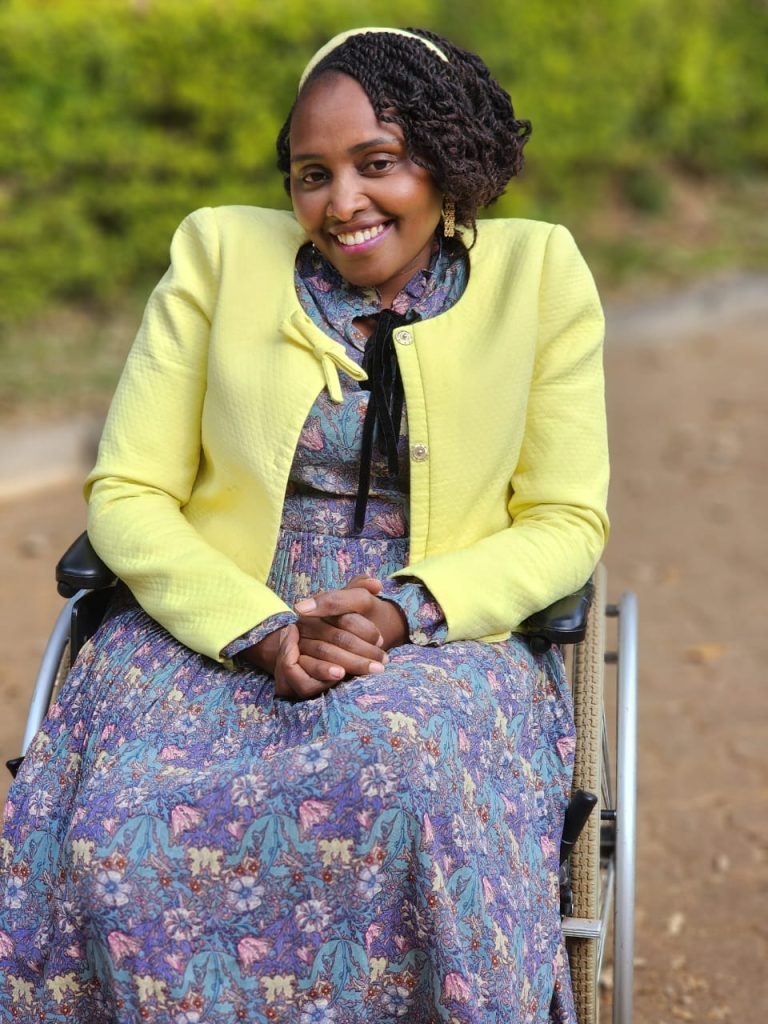
A Mother’s Determination Amid Breastfeeding Challenges » Capital News
NAIROBI, Kenya Aug 7 – In the bustling life of a school teacher, Mercy Kinoti—a devoted mother of two—quietly embodies resilience. As her second child approached six months, she returned to work when the baby was just four months old, determined to continue exclusive breastfeeding despite the demands of her profession.
Living with spina bifida, Kinoti has managed to juggle her dual roles as a teacher and a mother with admirable grace. Her journey has been made easier by the understanding and flexibility of her school and the close proximity of her home, which allows her to dash back and breastfeed during short breaks.
“Each morning before dawn, I diligently express milk to ensure my baby receives nature’s perfect nourishment throughout the day. We don’t have a refrigerator at school for milk storage, so I also rush home during breaks to breastfeed,” she says.

Her determination, however, has not come without hurdles. Long hours spent breastfeeding or expressing milk proved taxing due to her condition, often requiring pillows for back support. The early weeks after delivery were particularly tough as her baby struggled with latching, causing discomfort and gas.
To make matters worse, well-meaning but misinformed relatives added pressure. “Some said my baby cried because she wasn’t full or that my milk wasn’t enough. They even suggested adding porridge, but I trusted that my breast milk was sufficient,” she recounts.
She also received unsolicited advice on her diet, with suggestions to avoid dairy or green vegetables. However, Kinoti followed her nutritionist’s guidance, ensuring a diet rich in calcium and vitamins.
One particularly frustrating experience highlighted the systemic barriers faced by breastfeeding mothers—especially those living with disabilities. Invited to a workshop at a hotel, Kinoti struggled to find a private, accessible space to express milk.
“I need to wash my hands before expressing. But I wheel myself to the washroom, and by the time I’m back, my hands are no longer clean. I can’t risk contamination,” she explains. Even on days she used crutches instead of a wheelchair, hygiene remained a major concern.
Kinoti advocates for designated breastfeeding and expressing rooms in public and private institutions, equipped with power sockets, clean sinks, and cold storage. She believes such provisions are crucial in supporting working mothers—particularly those with disabilities—on their breastfeeding journey.
Also an author, Kinoti has written a book on self-confidence and self-love for women struggling with self-esteem. She believes that creating safe and inclusive spaces for nursing mothers is part of affirming women’s dignity and worth.
The Science and Support Behind Breastfeeding
John Robert Muthuku, a dietician at Kenyatta University Teaching and Referral Hospital (KUTRRH), emphasises the profound benefits of breastfeeding.
For mothers, it aids uterine contraction, supports weight loss, and significantly reduces the risk of breast and ovarian cancer. It also fosters emotional bonding and helps mitigate postpartum depression.

For infants, breast milk provides all essential nutrients for the first six months. Its natural properties boost immunity, reduce the risk of asthma, allergies, and SIDS (Sudden Infant Death Syndrome), and promote healthy brain and organ development.
Muthuku underscores the importance of support, especially from male partners. “Men play a crucial role—offering emotional support, helping with chores, and shielding mothers from harmful myths. Attending prenatal clinics together helps fathers understand and support breastfeeding,” he explains.
He also advises that mothers allow at least 15 minutes per breastfeed to ensure the baby receives both the hydrating foremilk and nutrient-rich hindmilk. Proper latching is essential to avoid nipple damage or mastitis.
A breastfeeding mother’s diet should include adequate fluids (water, tea, porridge) and a balanced intake of carbohydrates, proteins, fats, and micronutrients. Foods to avoid include tobacco, excessive caffeine, and overly processed sugars.
Supporting Special Needs and Systemic Interventions
Dr Emily Njuguna, a paediatrician and Africa Lead for Maternal and Newborn Health at PATH, emphasises that with the right support, even babies with physical or cognitive disabilities can breastfeed successfully.
“Mothers can be guided on positioning to avoid stressing affected areas. For conditions like cleft palate, special devices can aid feeding,” she says.

She advises mothers to start expressing milk early and regularly—especially when returning to work—to train the body to maintain supply. Expressed breast milk can stay at room temperature for up to 4 hours, refrigerated for 24 hours, or frozen for up to 12 months (depending on electricity reliability). Once thawed, milk should be used within 2 hours and not refrozen.
Dr Njuguna also encourages mothers to learn basic infant first aid and ensure caregivers are properly trained.
As part of a broader support system, she highlights the Human Milk Bank at Pumwani Maternity Hospital, launched in 2009 in collaboration with PATH, the Ministry of Health, and Nairobi County. It is part of a six-component model aimed at ensuring small and sick newborns receive exclusive human milk, which significantly reduces mortality and complications.
This model includes training healthcare staff, ensuring consistent feeding protocols, supplying feeding devices, supporting mothers’ mental health, and strengthening post-discharge follow-up.
Despite progress, Kenya’s exclusive breastfeeding rates have plateaued at around 60%, according to the 2022 Kenya Demographic Health Survey—well below some neighbouring countries that reach 80%.
This year’s World Breastfeeding Week 2025 theme, “Prioritize Breastfeeding: Create Sustainable Support Systems”, perfectly encapsulates Kinoti’s story. It is a call to recognise that supporting breastfeeding is not just a personal responsibility—it is a collective, systemic commitment to the health of mothers, children, and society at large.